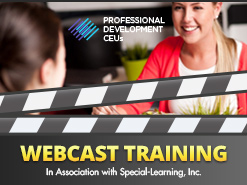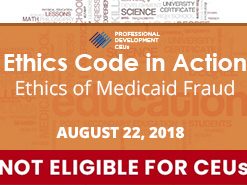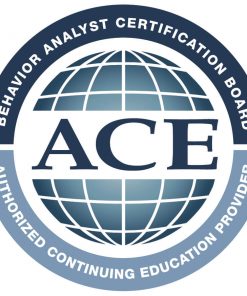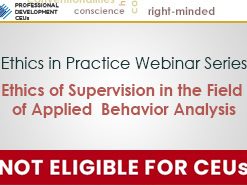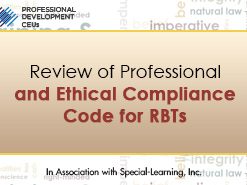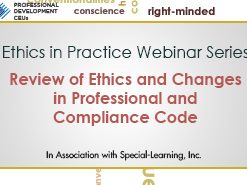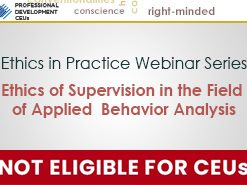Motivational Interviewing: Strategies to Decrease Resistance and Increase Buy-in
$79.00
Continuing Education Eligibility (Included):
(BACB®) 2 Learning
(QABA®) 2 General (In-person)
APA CEU Eligibility 2 General (CESA/Live and Home Study)
As clinicians or educators, how many of you have experienced barriers that get in the way of helping clients or students make progress because of resistance from other members of the treatment (or educational) team? Whether the resistance is from parents, peers, professionals, or any other stakeholders, the end result is the same — the ability to make progress is diminished.
Motivational Interviewing is an evidence-based intervention that has demonstrated substantial success in training teachers and caregivers on behavior modification techniques for children with developmental disabilities, changing addictive behaviors in substance users, and medication adherence in patients, among others. In short, motivational interviewing uses change talk strategies to increase cooperation and decrease resistance.
For clinicians and educators, this is a tool that any clinician and/or educators MUST have in their toolbox. WHY?
Research shows that parents who receive parent training obtain better outcomes during their children’s treatment, which results in decreasing their overall expenditures in therapy and becoming empowered to maintain these behavior changes over time. It has been found that effective communication between the parent and clinician is directly correlated to a parent’s buy-in and adherence to treatment plans.
For clinicians and educators, understanding motivational interviewing is just the beginning. The critical question is HOW?
Special Learning, in conjunction with Dr. Monica Gilbert, LMHC, PsyD, BCBA-D, an expert in combining the motivational interviewing strategy with behavioral strategies shared her knowledge and experience to help clinicians and educators remove communication-related barriers that get in the way of progress.
LEARNING OBJECTIVES:
- Describe the Motivational Interviewing framework — Transtheoretical Model
- Describe the key components of Motivational Interviewing (MI) and the context in which MI strategies can be used to remove barriers to effective communication.
- List situations in which MI strategies can be used to resolve conflict and increase buy-in.
- Describe 5 strategies to resolve communication breakdowns using MI strategies.
- Effectively describe the difference between “change talk” and “counterchange talk.”
- Describe how MI strategies can be used in real situations and the resulting benefits.
WEBINAR DETAILS:
Presenter: Dr. Monica Gilbert, Psy.D., BCBA-D, LMHC (view bio)
Panelist: Jennifer Rumfola, CCC-SLP, BCBA
NOTE: Dr. Glibert’s book, How to Stop Talking and Start Communicating with Motivational Interviewing: A Behavior Therapist Guide on How to Effectively Collaborate with Caregivers (paperback) is also available for purchase. (view/purchase the book)
Each purchase corresponds to 1 user license/access. Only the user with the license will be able to attend the live webinar, access the recorded webinar, and obtain continuing education credits.
Access to the recorded version is valid for 1 month.
MANDATORY DISCLAIMER: The Behavior Analyst Certification Board (“BACB”) does not sponsor, approve or endorse Special Learning, the materials, information, or sessions identified herein.
For cancellations and refunds, please see our policy HERE.
Related products
Webinars
Psychology Trainings (CEs)




